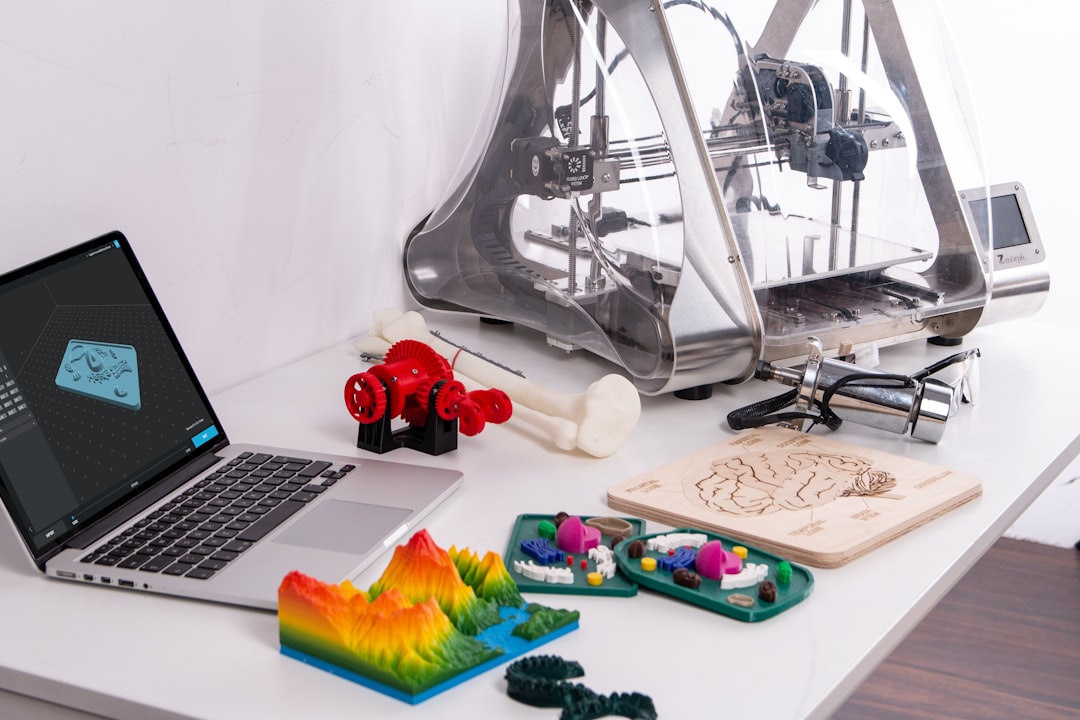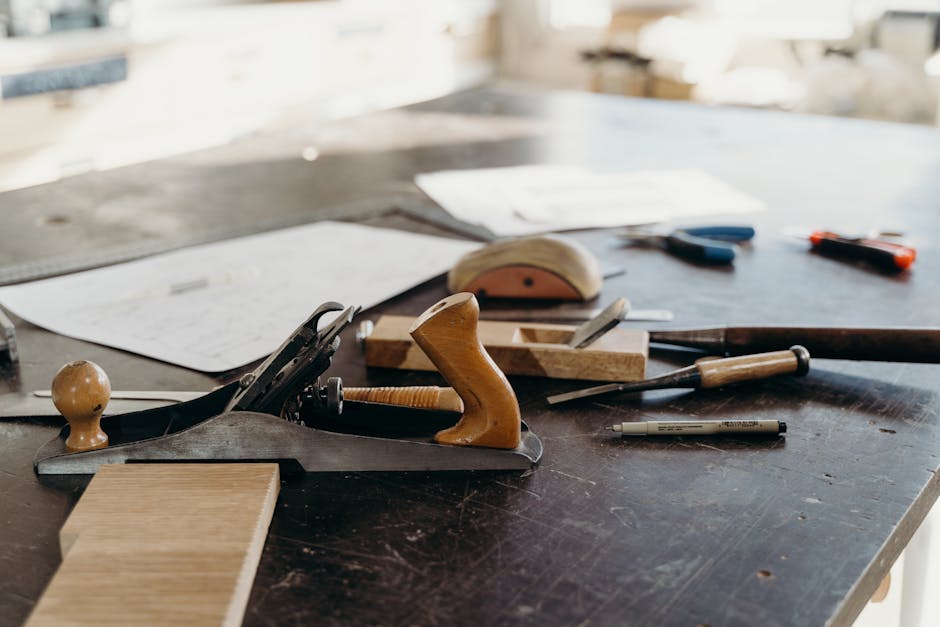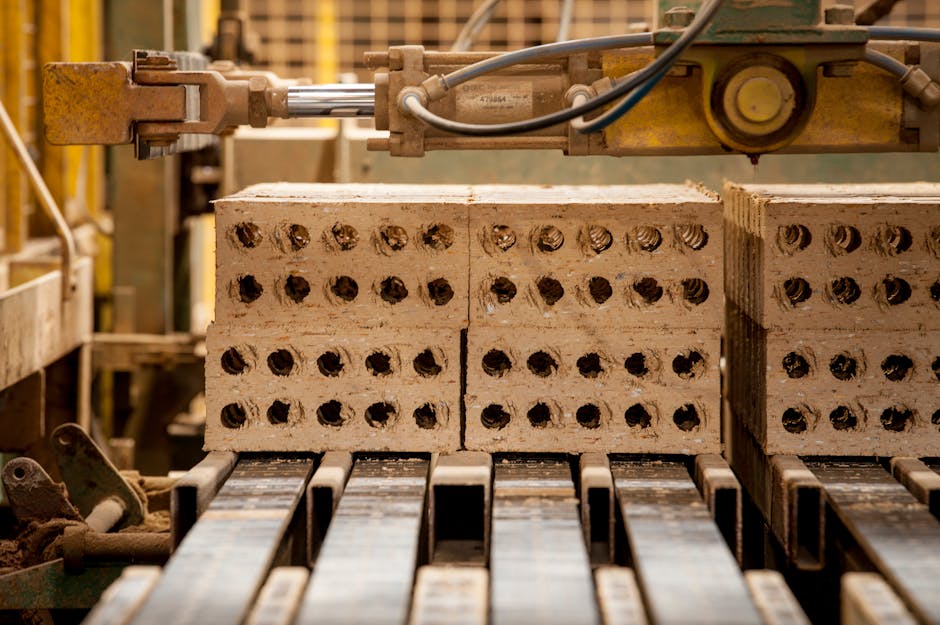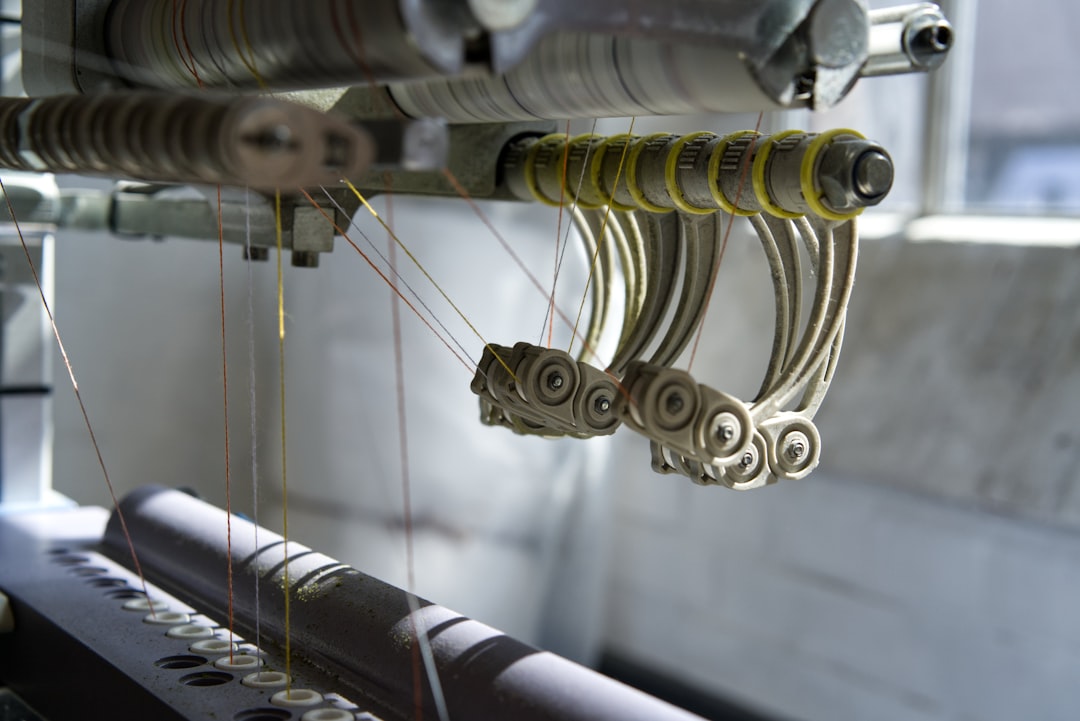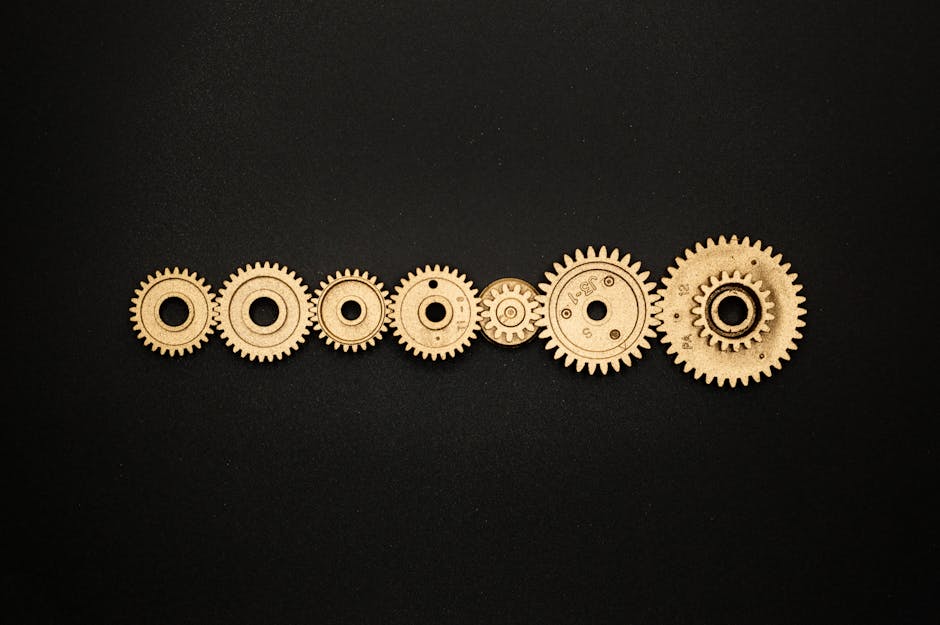Introduction
Struggling with finding high-quality CNC lathe parts for your industrial machinery? Worried about the accuracy, performance, and longevity of these components?
Brief Overview of Aerospace Machine Shops
Aerospace machine shops like TMC Technologies offer the solution. Serving as the backbone of the aerospace industry, these shops produce critical components enabling aircraft and spacecraft to function correctly. Specialists in this field use advanced techniques and a variety of materials, including steel, aluminum, and brass, to craft parts with the utmost precision and accuracy.
At the heart of these shops is CNC (computer numerical control) technology. This revolutionizes the machining process, transforming it from a manual, labor-intensive process to an automated, highly precise one.
Key Aspects to Consider while Choosing Aerospace Machine Shops:
– Rich history and experience in producing aerospace parts
– Relevant certifications like ISO 9001, AS9100, or ITAR, demonstrating quality management, customer satisfaction, and regulatory compliance
– Top-notch customer service providing prompt, knowledgeable assistance
– Ability to produce accurate, high-quality parts using cutting-edge CNC equipment
Importance of Precision Engineering in Aerospace
Precision engineering is indispensable in aerospace machining due to the criticality of the parts and components involved. Any slight error in the manufacturing process may result in serious operational problems and safety risks. Hence, only the high-quality services offered by exceptional aerospace machine shops can meet the extremely stringent industry demands.

As we dive into our list of the best aerospace machine shops for precision engineering, keep in mind that the capabilities and specialties of each provider can vary greatly. Find the best fit for your needs, taking into consideration their experience, level of precision, and customer service. Trust us, the right choice can transform your manufacturing process and take your aerospace products to new heights.
Aero-Space Tooling & Machining
Overview and Services Offered
Aero-Space Tooling & Machining is a high-tech manufacturing and machining facility that serves several industries, including aviation, aerospace, military, mining, robotics, and medical. This full-service company supports an extensive range of project requirements such as production runs, prototyping, tooling, programming, inspection, and assemblies. The company’s location near the Salt Lake International Airport enables it to serve local, national, and international customers effectively.
Materials Used and Their Importance in Aerospace
The aerospace industry requires materials that can withstand extreme conditions such as high temperatures, corrosion, and physical stress. Aero-Space Tooling & Machining understands this and therefore works with a wide range of materials. This includes aluminum, stainless steel, alloy steels, titanium, invar, inconel, and composites.
Each material has unique properties that make it suitable for specific applications. For example, aluminum is lightweight, corrosion-resistant, and has good thermal conductivity, making it ideal for aircraft structures. On the other hand, stainless steel is known for its strength and resistance to high temperatures and corrosion, suitable for making engine parts.
Certifications and Their Significance
Quality and safety are paramount in the aerospace industry. As such, Aero-Space Tooling & Machining is AS 9100 Rev. D registered, including ISO 9001:2015. These certifications are proof of the company’s commitment to quality management, customer satisfaction, and regulatory compliance.
Being AS 9100 Rev. D registered signifies that the company meets the stringent requirements of the aerospace industry regarding product safety and reliability. Meanwhile, the ISO 9001:2015 certification indicates that the company adheres to international standards for quality management systems. It shows that Aero-Space Tooling & Machining implements consistent processes to provide products and services that meet customer and regulatory requirements.
In conclusion, Aero-Space Tooling & Machining is one of the best aerospace machine shops due to its comprehensive services, use of quality materials, and prestigious certifications. Their commitment to providing reliable, high-quality products and services makes them a top choice for precision engineering in the aerospace industry.
Ardel Engineering
Role of CNC Machining in Aerospace
At Ardel Engineering, an important facet of our operations is Computer Numerical Control (CNC) machining. This technology has revolutionized the manufacturing process, enhancing the accuracy, efficiency, and speed of producing high-quality parts. In the aerospace industry, precision is non-negotiable. A single faulty component can lead to catastrophic consequences. That’s where CNC machining comes in.
CNC machining eliminates the risk of human error while creating high-precision components under tight deadlines. This technology can work with even the highest-quality metals, manufacturing aerospace parts that can withstand the intense pressures and temperatures inherent to these critical applications. The precision of CNC machines is so high that they can achieve tolerances up to 0.002 mm using aerospace-grade metals and plastics.
Materials Used and Their Importance in Aerospace
The materials used in aerospace machining must meet strict specifications. They should be strong and durable yet lightweight. One of the most commonly used materials in aerospace is aluminum. Its abundance makes it a very cost-effective material option. Despite its hardness and strength varying according to its series, aluminum remains easy to shape and machine. It’s widely used in aerospace applications as it meets stringent industry requirements while lowering manufacturing costs.
Other materials commonly used include stainless steel, alloy steel, titanium, and brass. The use of titanium and exotic alloys is on the rise in precision machining. These materials are known for their high strength-to-weight ratio, corrosion resistance, and exceptional performance under extreme conditions, making them a popular choice in the aerospace industry.
Precision Machined Parts and Their Applications in Aerospace
Ardel Engineering produces a wide range of precision machined parts for various applications in the aerospace industry. These include parts for military aircraft, missiles, spacecraft, commercial airlines, and general aviation.
Whether it’s for fighter jets, space vehicles, commercial airplanes, or helicopters, our precision machined components play a vital role in the functionality and safety of these crafts. For instance, airplane components such as landing gear, motion controls, turbines, and actuators are produced using CNC machining.
Ardel’s Expertise and Quality Assurance
At Ardel Engineering, our aerospace machine shop uses some of the most precise and innovative techniques available to create top-quality components for the aerospace field. We work within a strict climate-controlled environment to build products to tight tolerances, striving to anticipate and overcome any challenge our components might face in the field.
We understand the critical nature of aerospace applications. As such, we commit to the highest quality standards and rigorous testing to ensure our parts are not just fit for purpose, but also reliable and long-lasting. We ensure our processes and products meet and exceed customer and regulatory requirements.
In conclusion, Ardel Engineering is one of the best aerospace machine shops, providing high-precision, reliable, and cost-effective solutions that are crucial to the safety and success of aerospace operations.
Hi-Tek Manufacturing
Hi-Tek Manufacturing is another exemplary name in the list of top aerospace machine shops. They have carved a niche for themselves with their specialization in EDM (Electrical Discharge Machining) techniques including Wire, Fast Hole, and Sinker EDM. These processes are instrumental in creating exceptionally accurate and high-performing aerospace components.
Specialization in EDM Machining
EDM machining is a non-traditional method that uses electrical discharges to shape materials that are electrically conductive. Wire, Fast Hole, and Sinker EDM are all subsets of this process, each having its own unique benefits. Hi-Tek’s expertise in these areas enables them to create precision parts that are versatile enough to fit a wide range of applications in the aerospace industry.
Importance of Quality Materials in Aerospace
The materials used in aerospace manufacturing need to withstand extreme conditions, such as high temperatures and pressures. At Hi-Tek, they understand the critical importance of using premium quality materials. They utilize high-grade metals like titanium and stainless steel in their production processes to ensure the durability and reliability of their aerospace parts.
Role of Nickel Alloys in Aerospace
Nickel alloys play a crucial role in aerospace applications. They are known for their excellent creep resistance, which is the ability to resist deformation under high temperature and pressure over time. This makes them particularly suitable for high-pressure operations in the aerospace industry. Hi-Tek leverages the beneficial properties of nickel alloys in their manufacturing processes, further enhancing the performance and longevity of their components.
Hi-Tek’s Precision Manufacturing Techniques
Hi-Tek Manufacturing is not just about EDM; they also utilize more conventional methods such as computer-automated milling and grinding techniques. Their team combines these advanced techniques with premium-grade materials to produce flawless aerospace parts. These parts are an integral part of some of the most complex machines in the aerospace and aviation industry.
Moreover, Hi-Tek’s dedication to quality and superior workmanship is evident in their ISO 9001:2015 certification. This prestigious certification is a testament to their commitment to provide clients with a wide range of high-quality services. After the completion of a project, they perform a thorough inspection to ensure it meets the clients’ specifications and project requirements.
In conclusion, Hi-Tek Manufacturing embodies what it means to be one of the best aerospace machine shops, delivering top-notch components that are not only precise and reliable but also meet the most demanding applications in the aerospace industry.
Collins Aerospace
Overview and Services Offered
Collins Aerospace is a renowned name in the field of precision engineering in the aerospace sector. This globally recognized company is known for its expertly designed, high-quality, complex machined components and thermal management products.
The services provided by Collins Aerospace are not limited to just manufacturing; they work closely with their clients’ engineering teams to ascertain the feasibility of even the most complex tasks. Collins Aerospace’s manufacturing capabilities are truly world-class, employing best-in-class techniques such as lights-out machining, cellular manufacturing, and reduced setup times. Their gear-grinding capabilities are among the industry’s best, showcasing their commitment to precision and quality.
Importance of Certifications in Aerospace
In an industry where precision, safety, and reliability are paramount, certifications play a pivotal role. Collins Aerospace has garnered an array of approvals and certifications such as ISO 9001, AS9100 rev D, AWS C3.7, and NADCAP, which are evidence of their unwavering commitment to service and compliance. These certifications are not just badges of honor; they are a testament to Collins Aerospace’s dedication to quality management, customer satisfaction, and regulatory adherence.
Unique Manufacturing Techniques Used
What sets Collins Aerospace apart from many other aerospace machine shops are their unique manufacturing techniques. With their multiple computer numeric control (CNC) milling centers, they have the capacity to handle high-volume production within extremely tight timelines. They also employ advanced techniques such as lights-out machining and cellular manufacturing, which significantly reduce setup times and enhance efficiency.
Design and Manufacturing of Complex Components
When it comes to the design and manufacturing of complex components, Collins Aerospace is second to none. They consult with their customers to design the most cost-effective, durable, high-quality machined parts. Their expertise in the design and manufacturing of complex components such as gears, pistons, shafts, hydraulic assemblies, and much more, enables them to provide customers exactly what they need.
Applications in Various Platforms
The expertise of Collins Aerospace is evident in the variety of platforms their products are used in. From commercial aircraft like the Airbus A350 and Boeing 737NG to military aircraft such as the F-15 and F-16, and even space launch vehicles like Dragon 1 and 2, Collins Aerospace has proven their capability to produce high-quality components that meet stringent industry standards.
The commitment to quality and precision makes Collins Aerospace one of the top choices in the aerospace machining industry. Their extensive experience, cutting-edge techniques, and exceptional customer service make them a standout choice among aerospace machine shops.
TMC Technologies
Overview and Services Offered
As the aerospace industry continues to evolve, the demand for precise, high-quality machined parts also grows. That’s where we, at TMC Technologies, position ourselves as a trusted leader. Our services revolve around our commitment to providing top-tier CNC lathe parts. With over three decades of experience, we have honed our skills and broadened our capabilities to meet and surpass the complex demands of aerospace applications.
Our team of highly trained engineers and technicians utilize state-of-the-art machining technologies such as 3D modeling and CNC turning to ensure accuracy and superior workmanship. But our reputation extends beyond just providing parts. We are known for consistently delivering high-quality services, which has allowed us to carve out a niche in the competitive landscape of aerospace components manufacturing.
Importance of High-Quality CNC Components in Aerospace
In aerospace, there’s no room for errors. Every single component must be crafted with the highest precision and quality. That’s why we put a heavy emphasis on the production of high-quality CNC components. Our dedication to precision and quality ensures the longevity and reliability of your industrial machinery. We understand that every aerospace application is unique. Therefore, we offer custom tool design and fabrication services to meet your specific needs. Whether you need a specialized tool for a complex part or a custom fixture for an unconventional assembly, we have the expertise and resources to deliver.
Additional Services Offered
At TMC Technologies, we don’t just focus on manufacturing. We offer a wide range of additional machining services such as grinding, heat treating, light fabrication/assembly, and other secondary operations. This comprehensive approach ensures that your aerospace parts are not only manufactured to the highest standards but are also finished and assembled with the utmost precision.
Moreover, we also offer rapid prototyping services to help you test out your ideas before committing to production runs. This ensures cost-effectiveness and minimizes risks. Our CNC milling, drilling, grinding, and fabrication services cater to a variety of aerospace applications.
In conclusion, when it comes to aerospace machine shops, TMC Technologies is a name you can trust. Our blend of extensive industry experience, advanced technology, rigorous quality control, and commitment to customer satisfaction positions us as your ideal partner in precision aerospace machining. Contact us today to learn more about our services and how we can help you achieve your production goals.
Conclusion
Recap of the Best Aerospace Machine Shops
We’ve explored a selection of some of the best aerospace machine shops, each offering unique attributes and services. Aero-Space Tooling & Machining and Ardel Engineering stand out with their comprehensive CNC machining capabilities and their commitment to quality. Hi-Tek Manufacturing impresses with its focus on using high-quality materials, particularly nickel alloys, in aerospace applications. Collins Aerospace shines in its unique manufacturing techniques and design of complex components.
Last but not least, we at TMC Technologies offer an extensive range of services, from CNC machining to additional services that cater to the specific needs of our customers. Our commitment to quality and precision is unwavering, and we pride ourselves on our ability to deliver high-quality CNC components that meet the rigorous standards of the aerospace industry.
Importance of Precision Engineering in Aerospace Industry
Precision engineering is the backbone of the aerospace industry. With the demand for accuracy often within ±0.0001 inches, the role of precision machinery and advanced machining techniques, such as Swiss machining and multi-axis CNC machining, is undeniable. This level of precision not only ensures safety and reliability but also contributes to more efficient manufacturing processes, proving vital to the success of any aerospace project.
Final Thoughts on the Role of Aerospace Machine Shops
Aerospace machine shops – like ours at TMC Technologies – play a pivotal role in shaping the aerospace industry, crafting the complex and precise components that form the heart of any aerospace application. As the industry continues to evolve and demand higher levels of precision and quality, machine shops will continue to rise to the challenge, pushing the boundaries of what’s possible in aerospace engineering.
Through our dedication to precision, quality, and customer satisfaction, we aim to be your trusted partner in this journey. For more information on our services and how we can help you achieve your production goals, contact us. If you’re interested in learning more about precision machines and their role in manufacturing, make sure to check our page on precision machines.







